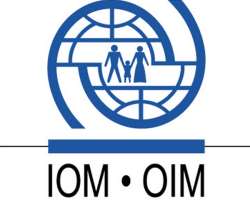Middle East and North Africa Protection Framework for Trafficked Persons and Exploited Migrants

GENEVA, Switzerland, June 13, 2014/African Press Organization (APO)/ -- IOM this week organized a regional dialogue in Jordan, hosted by the Jordanian government, entitled: “Creating a Middle East and North Africa Protection Framework for Trafficked Persons and Exploited Migrants: A Regional Dialogue on Sharing Promising Practices on Protection”.
The three-day meeting, which ended yesterday at a Dead Sea resort, brought together senior government counter trafficking officials from Egypt, Iraq, Jordan, Kingdom of Saudi Arabia, Lebanon and Kuwait to share their experiences of protecting trafficked persons and exploited migrants.
The objective of the dialogue – the first of two such events – was to initiate discussions on the development of a regional framework for protecting victims in the Middle East and North Africa (MENA). It took stock of best practices, challenges and lessons learned.
Recommendations included enhanced protection measures for victims of trafficking and exploited labor migrants and the need for collaborative efforts across the region through targeted and coordinated actions. Governments recognized the need for a regional approach to ensure an efficient and effective victim-centered response.
The dialogue is part of an IOM regional project: “Action to Protect and Assist Vulnerable and Exploited Migrant Workers in the Middle East and North Africa (PAVE),” funded by the European Union. It aims to contribute to the broadest protection of migrant workers against exploitation and human trafficking in the five countries of Egypt, Iraq, Jordan, Kingdom of Saudi Arabia and Lebanon.
The PAVE project includes six main activities: capacity building for frontline actors; regional dialogues; study visits; targeted victim assistance; awareness-raising on migrant rights and abuses; and research and analysis. Activities are implemented through engaging with civil society actors, government officials, migrants and the general public. The European Union contributes 80 per cent of the total EUR 1.7 million project budget.
